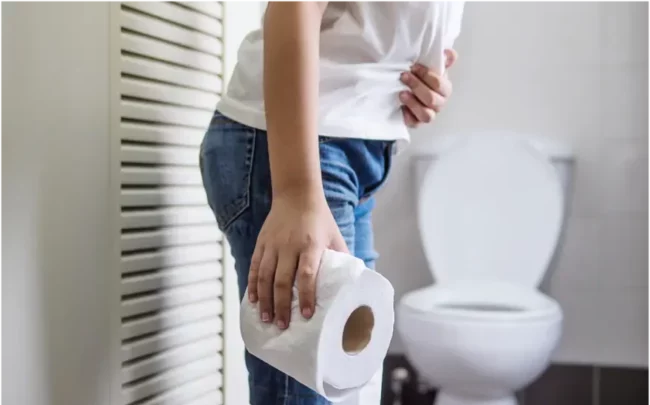Diarrhoea is a common digestive issue that can disrupt your daily life, causing discomfort and inconvenience.
While it’s usually not serious, it’s important to address it promptly to avoid dehydration and other complications.
Fortunately, there are several home remedies that can help manage and alleviate the symptoms of diarrhoea effectively
. By staying hydrated, adjusting your diet, and incorporating certain foods and supplements, you can support your body’s recovery and get back to feeling your best.
Here are ten effective home remedies to help manage and treat diarrhoea:
-
Drink plenty of fluids.
- Replacing lost fluids is essential to treating diarrhoea. Losing too many fluids and nutrients through diarrhoea puts you at risk for dehydration.
- Signs of dehydration include dark-coloured urine, dry mouth and skin, extreme thirst, fatigue, dizziness, and reduced sweating and urination.
- Consuming eight to ten glasses of water daily can help you stay hydrated. Try drinking one cup of water each time you have a loose bowel movement.
- Oral rehydration solutions (ORS) can replace fluids and electrolytes lost through diarrhoea and are available in powders to mix into water, liquids, and frozen popsicles.
-
Follow a BRAT Diet:
- Eating bland foods can help absorb water and keep you hydrated. The BRAT diet consists of bananas, rice, applesauce, and toast.
- Other suitable foods include broth, clear soup, potatoes, and saltine crackers, which are low-fibre and starchy, adding bulk to your stools.
- Bananas and potatoes without the skin are sources of potassium, a nutrient that diarrhoea may deplete. Transition back to a regular diet about 24–48 hours after having diarrhoea.
-
Eat fermented foods.
- Fermented foods, such as kefir, kimchi, kombucha, miso, natto, sauerkraut, sourdough bread, and tempeh, can help resolve diarrhoea more quickly.
- Foods with probiotics, including some yoghurts, can alleviate diarrhoea by repressing harmful microbes.
-
Limit Irritating Foods:
- Avoid foods that may worsen diarrhoea, such as greasy foods, fried foods, fruits like berries and prunes, full-fat dairy products, and certain vegetables like beans, broccoli, corn, green leafy vegetables, peas, and peppers.
- Avoid alcohol and caffeine, as they can increase intestinal activity and worsen diarrhoea.
-
Avoid Exercise:
- Avoid exercise if you have diarrhoea symptoms. Exercise can exacerbate fluid loss and make you feel worse.
- “Runner’s diarrhoea” can occur during or after long-distance running and may be triggered by caffeine, high-fibre foods, and FODMAPs (fermentable carbs).
-
Drink Tea:
- Chamomile tea may help alleviate diarrhoea. Combining chamomile flower extract, coffee charcoal, and myrrh can also be effective.
- Lemongrass tea may reduce the severity of diarrhoea caused by viral infections like rotavirus.
-
Try Ginger:
- Ginger has been used for stomach discomfort for thousands of years and is found in food, supplements, and tea.
- Although rare, ginger can sometimes cause diarrhoea and other digestive problems. Consult a healthcare provider if you use blood thinners or are pregnant before taking new medications or supplements.
-
Consider Over-the-Counter Medications:
- Imodium (loperamide) and Pepto-Bismol (bismuth subsalicylate) are effective OTC medicines for alleviating diarrhoea.
- Tylenol (acetaminophen) may help with pain, but avoid anti-inflammatory medications like aspirin and ibuprofen, which can irritate your stomach.
-
Try Supplements:
- Probiotics, like Lactobacillus acidophilus, can help restore a balanced environment in your digestive system.
- Foods rich in probiotics include miso, pickles, sauerkraut, and some juices and soy drinks.
-
Rest and Relaxation:
Sometimes, the best loose motion remedy for loose motions is simply to rest and relax. Stress can exacerbate digestive issues, so take some time for yourself, practice deep breathing exercises, and get plenty of sleep.
ALSO READ THESE TOP STORIES FROM NIGERIAN TRIBUNE






